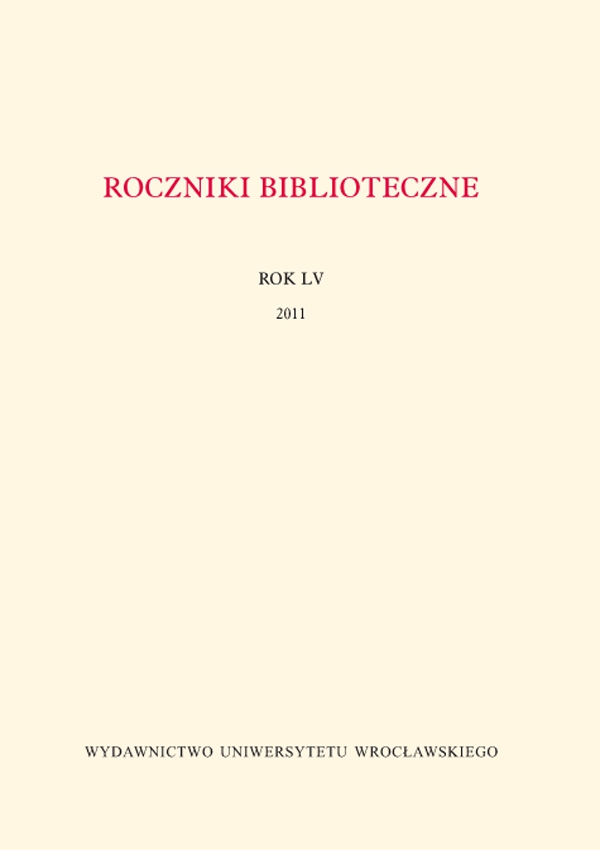

Artykuły i materiały

The problems and organisation of public libraries in Poland between 1945 and 1951
Before the outbreak of WWII, about a thousand of local government libraries, which made up 11% of all general educational libraries in Poland, did not constitute a uniform, multi-level library network. Most were municipal libraries as well as district library centres, providing the rural population with mobile book collections. The war and occupation led to the dissolution of the network of general libraries, including local government libraries in their pre-war form. Social considerations, such as fight against illiteracy, development of the education system and readership, as well as political and ideological objectives of the ruling party became the reasons behind the rebuilding and development of public libraries in communist Poland. The basic segment of this type of libraries was a network of libraries set up on the level of self-government units. It was made up of municipal urban and rural libraries, as well as district and provincial libraries. Of crucial importance to the development and organisational form of public libraries in Poland was the Decree on libraries and safeguarding of library collections of 17 April 1946. The organisation of public library network was carried out in several stages and came up against many difficulties, especially financial ones as well as those concerning the buildings and the staff. In late 1947, the network encompassed less than a thousand libraries barely 6% of all libraries in Poland, with a combined book collection of 2.8m volumes. In 1948, the beginnings of the Stalinist period, the authorities decided that public libraries were a useful tool in the indoctrination process carried out by means of books and reading. The state expenditure on libraries increased as did, and very rapidly, the number of libraries, especially municipal ones. At the same time the collections were expanded to include socialist realist, socio-political and party literature. In 1950, after local self-government was disbanded, the public library network was taken over by the state. In 1951 this network was made of 4,187 libraries and their branches, which had 13.5m books in total. In the same year the government dissolved the Naczelna Dyrekcja Bibliotek Central Library Authority at the Ministry of Education, which oversaw all libraries in Poland; its powers with regard to public libraries were transferred to the Minister of Culture and Art.